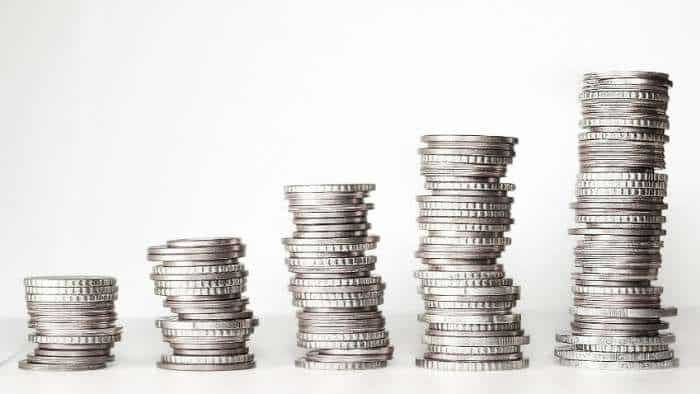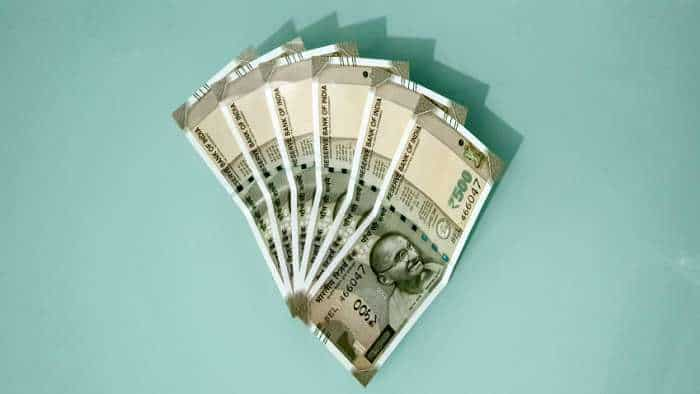Wealth Guide: Taxation on Virtual Digital Asset explained in simple steps
We spoke to Ashok Shah, Partner at N.A. Shah Associates LLP, and Co-authored by - Meet Raja, Akshay Jain to decode taxation on Virtual Asset.

It is estimated that the total number of crypto investors could be around 1.5 to 2 crores in India with a total investment value of around Rs. 40,000 crores.
Most of them would be operating through private exchanges which are not regulated under any act or a law.
We spoke to Ashok Shah, Partner at N.A. Shah Associates LLP, and Co-authored by - Meet Raja, Akshay Jain to decode taxation on Virtual Asset:
Income from purchase and sale of (Virtual Digital Asset) “VDA” was always taxable.
Due to uncertainty on the taxability of the same, taxpayers were given different tax treatment as per their discretion.
Some would show it as capital gains and others would show it as business income/income from other sources.
There was no control on the transactions carried out in VDA and hence it was easy for taxpayers to hide them from authorities or not disclose them in the return.
Government allowed the trade in VDA to grow in size without regulating it. It flip-flopped between banning it and cautioning people not to trade.
Finance Minister said that the government of India is yet to recognize cryptocurrency however it is now proposing to tax the same at this point of time in order to keep a tap on the money trail.
Budget 2022 has proposed a tax rate of 30% plus surcharge and cess, which is stiff for most of investors. It seems unlikely that they will bear such a burden.
Following are the prohibition while taxing the VDA:
a. Non allowance of any expenses other than cost of acquisition of VDA
b. No losses arising from VDA can be set off against any other income,
c. No losses from any other sources can be set off against VDA income and
d. No losses from VDA can be carried forward to future years
By the introduction of Sec 194S, Government is aiming to keep a tab on transactions taking place in the VDA segment.
The burden of compliance is placed on the purchaser of such VDA based on tax status and the value of transactions. The applicability of TDS can be summarized in the following table:

When provisions relating to TDS on sales of goods was brought on statute (section 194Q), CBDT had to withdraw the applicability of such transaction to listed securities on the ground that “there is practical difficulties in implementing the provisions of TDS in case of certain exchanges and a clearing corporation.
It has been stated that sometimes in these transactions, there is no one-to-one contact between the buyers and sellers.
In order to remove the difficulties, provisions relating to TDS was not made applicable to the transaction in securities and commodities which are traded through recognized stock exchange or cleared and settled the recognized clearing corporations, transactions in electricity, renewable energy certificates and energy-saving certificates traded through power exchanges.
A similar position exists for trading in VDA on platforms where a one-to-one contract between buyers and sellers is absent.
There exists provision relating to trading through platforms which are also not recognized under section 194O.
It is specifically provided that where provisions of both section 194O and 194S applies, TDS will have to be deducted under section 194S.
It is difficult to understand why the Government chose to introduce section 194S which is fraught with various practical difficulties when a similar objective of collection of data could have been achieved by section 194O.
If the Government wanted to include transactions not carried out through the platform, provisions of section 194S could have been made applicable only where provisions of section 194O do not apply.
The introduction of Section 115BBH with effect from Assessment Year 2023-24 would mean that in the event the taxpayer already has unrealized loss on purchase of VDA and if he books such loss after 31st March 2022, he will not be allowed to set off such loss against other income.
In the event, the taxpayer desires to set off such loss against other income he should book losses before March 31, 2022.
Further there is no clarity on how the VDA generated by data miners will be liable to income tax. All the costs incurred by the data miners for producing the VDA should be allowed as a deduction on the ground that it represents the cost of acquisition of VDA.
Income from transfer of VDA by the data miner could however be taxed at 30% under section 115BBH.
(Disclaimer: The views/suggestions/advices expressed here in this article is solely by investment experts. Zee Business suggests its readers to consult with their investment advisers before making any financial decision.)
Get Latest Business News, Stock Market Updates and Videos; Check your tax outgo through Income Tax Calculator and save money through our Personal Finance coverage. Check Business Breaking News Live on Zee Business Twitter and Facebook. Subscribe on YouTube.
RECOMMENDED STORIES

Highest Senior Citizen FD rates: See what major banks like SBI, PNB, Canara Bank, HDFC Bank, BoB and ICICI Bank are providing on special fixed deposits

Top 7 SBI Mutual Funds With Highest SIP Returns in 15 Years: No. 1 scheme has turned Rs 12,222 monthly SIP investment into Rs 1,54,31,754; know about others too
11:34 AM IST









 Wealth Guide: Planning to invest Real Estate? Expert decodes what all you need to understand
Wealth Guide: Planning to invest Real Estate? Expert decodes what all you need to understand Wealth Guide: Real Estate - Is It A Great Choice For Investment? Expert Suggests This
Wealth Guide: Real Estate - Is It A Great Choice For Investment? Expert Suggests This  Zee Business Top Picks 18th Sep'22: Top Stories This Evening - All you need to know
Zee Business Top Picks 18th Sep'22: Top Stories This Evening - All you need to know Zee Business Top Picks 14th Sep'22: Top Stories This Evening - All you need to know
Zee Business Top Picks 14th Sep'22: Top Stories This Evening - All you need to know Wealth Guide: Real Estate - Things you must know when choosing a builder
Wealth Guide: Real Estate - Things you must know when choosing a builder